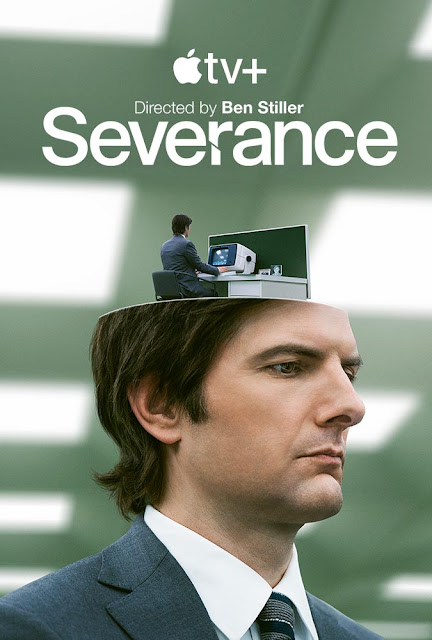After you've betrayed yourself, can you trust yourself again?
After its season 1 ended in a thrilling cliffhanger, Severance took its sweet time to return to screens. And it (literally) hit the ground running: now our protagonist, Mark, knows that Gemma, his wife, is still alive, hidden somewhere in the restricted levels of his workplace. Now he'll need to enlist the help of his other self, the separate identity the company created for his job, but he has his own budding romance to worry about. An added problem is that said love interest is Helly, the work self of the company's heiress, whose agenda appears to be not fully in line with her father's or her unwitting coworkers'. Meanwhile, the rest of the Macrodata Refinement team have to deal with the consequences of their escape attempt: Irving struggles to keep a sense of purpose now that Burt has retired (even though their external selves seem to be getting acquainted), and Dylan still hasn't gotten over the revelation that he has a full family—but what he learns from pursuing that route may not be the antidote to loneliness he's seeking.
One of the best things about Severance is the richness of levels of interpretation that it allows for. While Season 1 focused mainly on the corporate dystopia side of the story, season 2 aims inward and explores the personal trauma side. We knew that Mark's reason for undergoing the severance surgery was to avoid experiencing the pain of having lost Gemma, which creates the separate identity that lives during office hours in his stead. An implication that was not immediately obvious in season 1 is that this process resembles the survival mechanism that occurs in people with dissociative identities: to protect itself, the mind creates other selves who will bear the burden of trauma that the core self finds too much to face directly. As we discover Gemma's whereabouts, the reason she's being kept there, and how that relates to the real purpose of severance technology, we find more dots to connect that bring us nearer to the full picture: in fulfillment of the doctrine of its mythologized founder, Lumon plans to permanently subdue the Four Tempers.
A key step in this plan is Macrodata Refinement. In this season we learn what those funny numbers our protagonists spend endless workdays sorting mean, and the answer reveals yet another side to Lumon's unflinching cruelty. In fact, even those most loyal to Lumon can be tossed away without a thought. We saw in season 1 how Harmony Cobel went through a collapse of her entire worldview (and season 2 reveals the extent of how much she actually did for Lumon); this time it's Seth Milchick who gets pushed to the limit of his patience, not so much by the employees' already established rebelliousness but by the totalitarian capriciousness of upper management, whose disciplining methods start to grow increasingly degrading.
Another important shift relates to location. We get more episodes set outside of Lumon, some of which are the highlight of the season, which showcase how far and how deeply Lumon's reach has corrupted the world around it. These episodes help us better understand the motivations of Harmony, Burt, Seth, and even Gemma and Helly, but these are the kind of brilliant revelations that don't close off follow-up questions. Yes, now we know what those characters want, but why would they want that?
This insight into hidden motives and strange choices informs the central relationship of the season: that between Mark and his work self. Each half of his identity knows only part of the puzzle about Gemma, and they're going to need to work together in order to rescue her. But of course, it's hard to join forces if each Mark exists only while the other doesn't. The external Mark's efforts to communicate with his workplace half escalate in desperation until both versions of him realize how little they know each other and how incompatible their goals truly are. And here's where the story's various interpretative possibilities come into play. Rather than a separate character, office Mark can be seen as a part of Mark's mind that he's neglected and refused to acknowledge. It's a substitute self that helps him skip the necessary steps of his grieving process. After so much time spent nurturing such an unhealthy coping strategy, it shouldn't be surprising that the original act of self-betrayal becomes multiplied. Mark, who has been suffering intensely without the love of his life, should know better than to try to inflict the same pain on someone else. And yet, in his moment of need, that's exactly what he offers to his other half. The latter's response is shocking, but understandable.
After a stellar first season, Severance found a way to raise the bar even higher. Somehow managing to juggle the interpersonal tension of the panoptical workplace, the dark dead-ends of unprocessed grief, and the ever-worsening difficulty of staying true to oneself under a system of coerced devil's bargains, Severance continues to be a masterpiece of psychological intrigue and imaginative storytelling.
Nerd Coefficient: 10/10.
POSTED BY: Arturo Serrano, multiclass Trekkie/Whovian/Moonie/Miraculer, accumulating experience points for still more obsessions.





